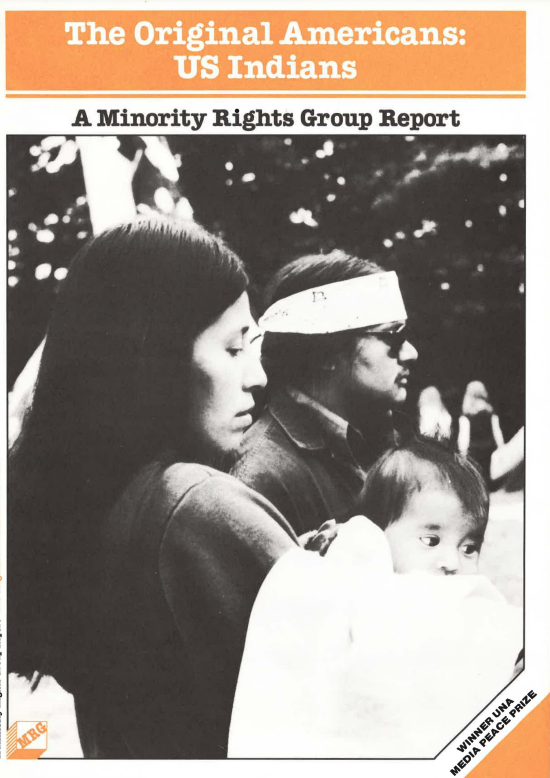
The original Americans: US Indians
‘The Trail of Broken Treaties’ was the name given to a major protest by US Indians. It reflected their anger at their continued suffering more than a century after their final defeat by US forces.
At the time of Columbus, there were probably more than 600 autonomous Indian societies, ranging from tiny hunting and gathering bands to sophisticated agricultural nations. Despite their differences, all shared a complex pattern of interwoven relationships and a deep feeling for their land and their way of life.Initially, many Indian peoples welcomed and assisted the colonists but their kindness was repaid by brutality, dispossession and death. The invaders advanced into the interior of the continent, displacing the people and destroying the environment. The Indians fought back using entreaty, law and force. The treaties they negotiated with the government were ignored and broken and they were gunned down and herded into ‘reservations’. Their land and livelihood were stolen from them, their religion and culture ignored and the Indian peoples were forced to live on the margins of mainstream society.
Today, one and a half million US Indians are fighting back – for land and water rights, to stop destructive mining and ranching, against stifling government bureaucracy and for new initiatives in education, health and justice.
The Original Americans: US Indians gives a detailed account of the history of Indian/White relations and the frustrations faced by Indians today. Written by James Wilson who travelled extensively in the US gathering material for this report, it is essential reading for teachers, students, the media and all those fighting for indigenous peoples rights.
Please note that the terminology in the fields of minority rights and indigenous peoples’ rights has changed over time. MRG strives to reflect these changes as well as respect the right to self-identification on the part of minorities and indigenous peoples. At the same time, after over 50 years’ work, we know that our archive is of considerable interest to activists and researchers. Therefore, we make available as much of our back catalogue as possible, while being aware that the language used may not reflect current thinking on these issues.